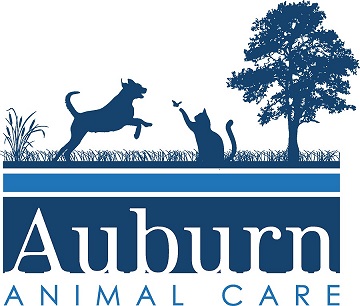Site Accessibility Features: Skip to page menus
Site Menus Section Skip to page content

Site Accessibility Features: Skip to page menus
Site Menus Section Skip to page content

May 28 2020
Home » News » Keeping Your Pets Water Safe This Summer
Summer will be here before we know it! While we’re not sure just yet if we’ll face travel restrictions due to COVID-19, there’s a chance some of us will still be hitting the beach, heading to a secluded swimming hole, or staying home to cool off in our own pool! Be sure to follow your local health officials’ guidelines before heading to public areas and practice social (physical) distancing when you’re out.
Before cooling off with your pet this summer consider some safety tips to prevent injury, drowning, illness, or toxicity.
Stream Safety. Walking to a local stream is a great way to get some exercise. And letting your dog have a romp in the water is a great way to cool down on a hot summer day! Be aware that stream water—along with lakes, springs, puddles, and ponds—contaminated with feces from animals (e.g., cattle, sheep, goats, horses, pigs, beavers, and coyotes, and domestic dogs and cats) puts your pet at risk of giardiasis and other bacterial and parasitic infections. Giardiasis, also known as beaver fever and traveler’s diarrhea, is caused by microscopic protozoans called Giardia intestinalis. The signs of giardiasis include an acute onset of diarrhea and sometimes vomiting. Young dogs and cats are at risk of dehydration with severe diarrhea. Instead of letting your dog drink from the stream, carry water for him to drink. If your pet develops symptoms after drinking stream, lake, or pond water, contact your veterinarian.
Puddles. Puddles in your yard or on the trail can harbor a host of bacteria and parasites that can cause disease in your pets. Giardiosis and leptospirosis are diseases that can have serious health outcomes. Leptospirosis is caused by a type of bacteria, Leptospira interogans. Infected animals, including wildlife such as rats, mice, raccoons, and skunks, shed the bacteria in their urine and can contaminate water. Kidney or liver failure can occur with infection and severe infections can cause sudden bleeding problems, shock, and death. Cases of leptospirosis occur more commonly during warm, wet weather, and during periods of high rainfall or flooding. Don’t let your pets drink from puddles—carry a pet water bottle for long hikes and keep fresh water for your pet in your yard.
Lake and Ocean Safety. Blue-green algae, rocks and debris, and rip currents are important things to consider before letting your dog dive off the dock or pier.
Pool Safety. If you plan to spend your summer days lounging by your pool with your pets, never leave your pet unsupervised by the pool. Though most cats will avoid water, it’s important to keep an eye on her just in case she slips in. If she does fall in, once you’ve rescued her, rinse her off with fresh water to remove any chlorine or other pool chemicals. Dry out her ears to prevent an ear infection and give her a rub down with a towel to start the drying process. Not all dogs have a natural instinct to swim. Never force your dog to swim—it will only make him fearful of water. If your pool doesn’t have steps or stairs, but instead has a ladder, your dog may have difficulty getting out on his own. If you do have steps, train him to use them to get in and out of your pool. Rinse your dog off with fresh water after swimming to prevent irritation from chlorine or other pool chemicals. Be sure to provide fresh water to your pets all day. Hot summer days demand extra water and swimming is exercise! Your dog will need to replenish lost water. Freshen the water bowl regularly and place ice cubes in it to help keep the water cool.
Don’t delay! If you do run into problems with your pet and suspect he or she has consumed contaminated water, has an ear infection, or injured himself seek out immediate veterinary care. At the end of the day when your veterinary hospital has closed, it can be tricky to know if the problem is an emergency or if it can wait until the hospital opens again. Many veterinary hospitals offer telehealth (triage or telemedicine), emergency afterhours care, or have a partnership with a local afterhours emergency clinic. When in doubt, call your veterinary healthcare team! Delaying your call could change the outcome for your pet.
LifeLearn News
Note: This article, written by LifeLearn Animal Health (LifeLearn Inc.) is licensed to this practice for the personal use of our clients. Any copying, printing or further distribution is prohibited without the express written permission of Lifelearn. Please note that the news information presented here is NOT a substitute for a proper consultation and/or clinical examination of your pet by a veterinarian.
Connect with us and one of our team members will be happy to assist you.
Phone: 440-543-1311 Fax: 440-973-9101 Email: info@auburnveterinaryhospital.com
Email UsRequest An Appointment10323 East Washington Street Chagrin Falls, Ohio, 44023
Monday: 8 am – 6 pm Tuesday: 8 am – 6 pm Wed: 8 am – 5 pm Thurs: 8 am – 6 pm Fri: 8 am – 5 pm Sat & Sun: Closed
Get DirectionsOur app features unique technology which allows you to access your pet’s medical records, book real time appointments, get Health Certificates, and much more.
© 2025 Veterinarians in Chagrin Falls | Auburn Animal Care. Provided by Covetrus | Powered by LifeLearn WebDVM